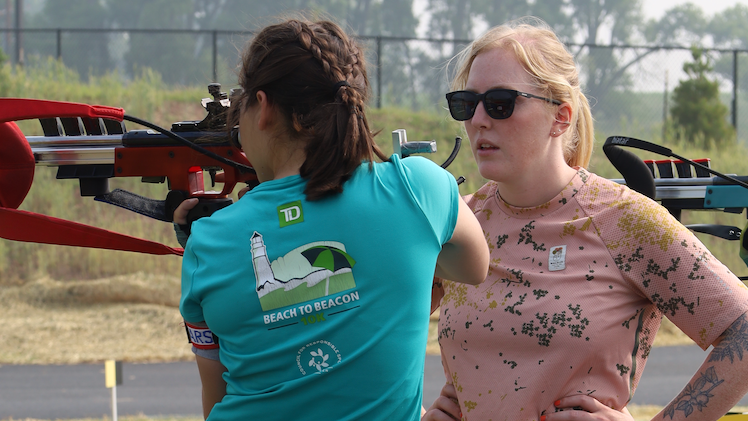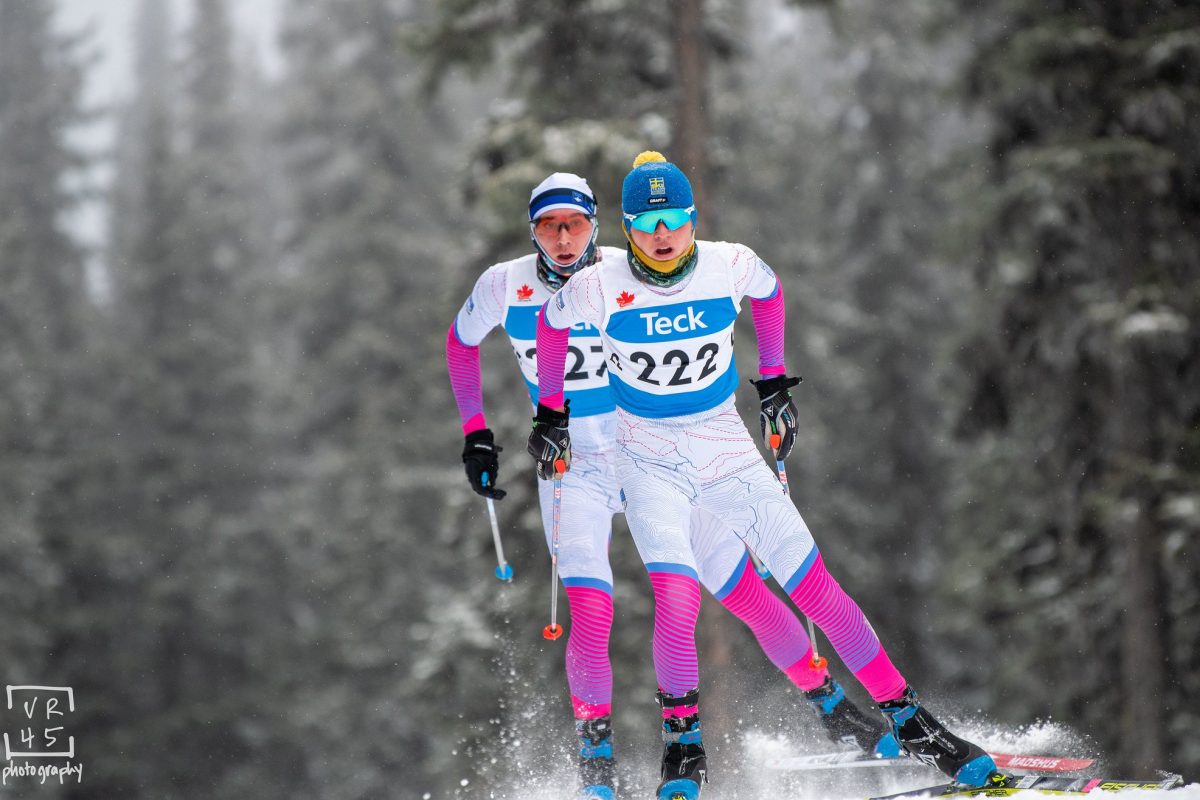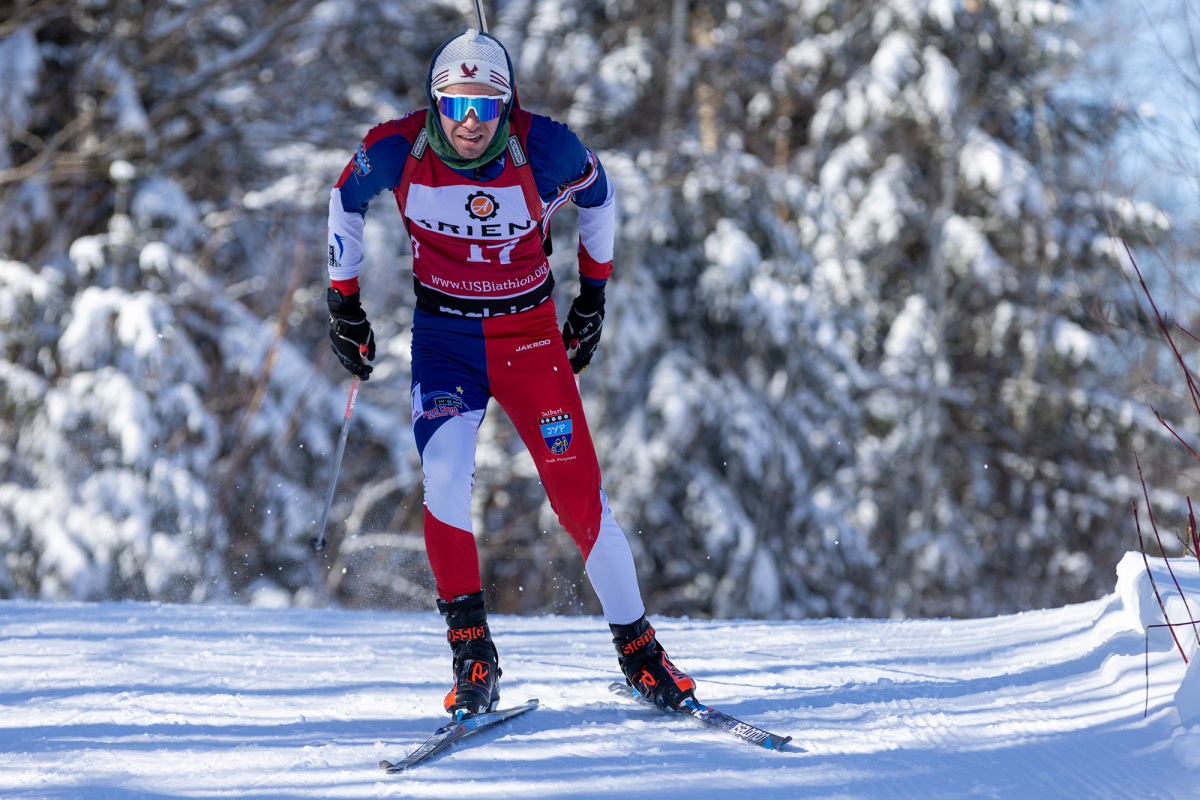
The U.S. biathlon team could be forgiven for having high expectations going into this year’s Under-26/Open European Championships in Osrblie, Slovakia.
Last year, Leif Nordgren entered just one race at the event, and didn’t even finish. But a few weeks later, he notched three top-thirty finishes at senior World Championships.
In that same U26 series in Ridnaun, Italy, Russell Currier repeatedly finished in the 20s and 30s. But just two weeks ago, he bettered those results on a higher stage when he sprinted to sixth place in a World Cup in Nove Mesto, Czech Republic.
Both athletes have taken major steps since their last appearance at the U26 races, as has Laura Spector, whose top finish in 2010 was 34th, but who spent the entirety of last season on the World Cup.
So this year, the team had every right to hope for better finishes. And while it didn’t happen on Saturday – Currier was the only American to crack the top 30 – coach Patrick Coffey didn’t consider the pair of sprint races to be a wash.
“Today’s races were a quiet success I would say,” he told FasterSkier in an e-mail.
Currier and Nordgren, who missed three shots to finish 45th in the 10 k sprint, were disappointed nonetheless.
“Tough race this morning in Slovakia,” Nordgren tweeted after the race. “Tomorrow is another day though and I’m looking forward to it!”
Currier, who said the race was “decent, but not up to expectations,” was undone mainly by his shooting. Not only did he miss three shots, but he lost over thirty seconds to his fastest competitors during the two shooting stages alone. There were bright spots, however: Currier’s seventh-fastest ski time of the day mitigated some of his other problems, and he finished 27th.
“I actually didn’t feel that great on skis,” Currier told FasterSkier. “My transitions were a little sloppy in some parts. I was surprised to have the seventh fastest loop time.”
Of his shooting, he said that he was also surprised to have missed two shots in standing.
“I’m still kicking myself for that,” he said. “I really thought I could clean standing today.”
His time placed him 1:45 behind Alexey Volkov of Russia, a World Cup regular who anchored the winning mixed relay in Hochfilzen, Austria this season and whose victory today surprised nobody.
In fact, the presence of athletes like Volkov is one thing that makes this year’s U26 races unusual – and more competitive than in past editions. In 2010, the event was held directly after the Vancouver Olympics, and only a handful of athletes, generally from smaller countries, competed in both. In 2011, the Ridnaun races followed the World Cups held in Fort Kent, Maine, leading to a similar situation.
But this year, the U26 Championships are being held during a World Cup off-week between Antholz, Italy and Oslo, Norway, making travel and jetlag less of an issue for athletes wanting to work the event into their World Cup schedule. Today’s field was almost 20 % bigger than last year’s.
“It was a little more competitive than I thought it would be,” Currier said.
While the results were disappointing and the races themselves less than exciting for the pair of men who had competed in Antholz – Currier said that the crowd “could not hold a candle to your average World Cup” – it was part of a cautious return by the third American man, Mark Johnson.
A five-time World Junior Championships competitor, Johnson recently graduated from Williams College and hasn’t appeared in an major biathlon race in three years.
“For me, this was a fun introduction back into international racing,” Johnson wrote in an e-mail. “After spending my last season focusing on collegiate cross-country racing, my confidence on the ski tracks has improved. That showed today. My skiing was on pace with much of the field.”
Johnson missed two shots and finished 44th, just over a second in front of Nordgren, and said that he was “very satisfied with the result.”
While he hasn’t made any international squads until now, Johnson had offered up a series of fairly dominating performances in domestic competition this season. He may have been happy with his result, but it didn’t mean that he wasn’t expecting more in the coming races, just like his teammates.
“Overall, I think we performed solidly,” Johnson wrote. “There is room for improvement on the result list, and the hope is to realize that in the coming races.”
The U.S. trio seemed enthusiastic for Sunday’s pursuit, which should feature large packs thanks to the many tight finishes in today’s sprint. Currier, for example, sits about 20 seconds out of the top 20, or one penalty loop; Nordgren will start in a pack of six skiers within ten seconds.
“I’ll be starting with a large group, and right alongside my teammate Leif, which will definitely make for a thrilling environment to race in,” Johnson said.
“And as a team, I believe we can make up some major ground on our competitors.”
* * *
In the women’s 7.5 k sprint, Spector and teammate Hannah Dreissigacker narrowly missed the top 30, placing 32nd and 33rd. Neither, however, seemed too disappointed.
“In skiing I felt all right, nothing exceptional,” said Spector, who started this season on the World Cup circuit before being moved to the second-tier IBU Cup tour. Spector has so far been unable to find the form she showed last season, but said that her ski speed was coming back little by little; she had the 31st-fastest ski split today.
“This is the first ‘World Cup’ course I’ve competed on since mid-December, which means that it’s more challenging than most courses used for IBU Cups,” Spector said of the skiing. “There are two really long, steep hills in the first half of the course, followed by a lot of downhill that still requires efficient skiing, where I lost the most time.”
Spector missed two shots, both in the standing stage. Her prone shooting, however, was exceptional: not only did she clean, but she did it with the second-fastest time in the field.
“I was surprised to see how fast my prone time was because the shots felt scattered,” she explained. “I jammed a shell in standing so it took a little time to clear that out, otherwise I would expect standing to be faster.
“I have not been working on shooting speed this year, although I have noticed an improvement,” she continued. “I think it’s simply come from having a good number of years of shooting training behind me now, being able to calculate a good range approach, and being comfortable with shooting faster; it’s really been a natural process.”
The same could not be said for Dreissigacker, who hasn’t contested an international biathlon race in two years and has only competed in two U.S. events this season. A successful skier for the Craftsbury Green Racing Project who made the top 20 in every race at 2012 U.S. Nationals in Rumford, Maine. Dreissigacker was surprised to be nominated to the team, and wasn’t sure what to expect.
Once the racing began though, she was no longer as apprehensive.
“I felt like I actually was a real biathlete,” Dreissigacker, who accrued three penalties, told FasterSkier. “I successfully accomplished my goals of going through all the equipment checks, shooting at the right targets, skiing the right number of penalty laps, skiing hard, and having fun!”
Like Spector, Dreissigacker noted the difficulty of the course’s long climbs, and said she was looking forward to shorter loops with less vertical in Sunday’s pursuit. But despite the challenges, she said that the venue actually suited her well.
“There’s about 1.5 k of flat rolling [terrain after the hills], which makes for an easy approach to the range,” she said. “That’s good for me – it means that I can ski pretty normally and then just back off a little bit on the gradual downhill into the range.”
Coffey, the team’s coach for this trip, was impressed with both Dreissigacker and Johnson given their lack of recent big-race experience.
“Both have been taking it all in stride,” he said. “There is an adjustment that needs to be made when jumping into the European racing circuit, but both looked relaxed today and will feel even more at home tomorrow in the pursuit race.”
Canada’s Megan Heinicke finished 18th in the women’s sprint; she could not be reached for comment.



